Guest Lecture
Issue #15 - Patrick Joust on photography📸
Hi guys!!!!! I had the absolute pleasure of getting in contact with Patrick Joust & I got to bother him & ask some questions about his life & his work & all of that!
A little background … Patrick Joust is a California-born Baltimore-based photographer. he went to UMD (go terps!!🐢) & became interested in photography in 2002. On his website, he claims to use cameras as a way of connecting the places & the people he encounters. I originally found his work on Tumblr & really loved it! I then followed him on Instagram & you would probably know the rest.
So many things inspire me & one huge thing would be photography, but it‘s not something I am interested in taking up at all at this current moment in time!! But something I do love looking at other people’s works, I just love to look at photos & try to understand what fuels or inspires people to do things or their life!
1. Looking over your work, how do you think that your vision, along with your technique, has changed over time? And how does it affect the way you take photos now?
While it doesn’t matter what tools/cameras you use to take pictures, they definitely have an influence. I’m 47, so I grew up in an analog world. My first camera was a Kodak Instamatic my parents bought from a drug store for my birthday. I was probably 8 or 9, at the time. Film photography was all there was, of course. When I decided that I wanted to take “good” pictures with a “serious” camera, I was around 25 in 2002/2003, and digital had been around for a couple years. However, digital was expensive, so I was still shooting film, not out of some kind of aesthetic consideration, but because it was cheap. A lot of high-quality film cameras were being sold for very little. One of the ones I bought was a Canonet QL17 rangefinder. I didn’t even know what a rangefinder was at the time, but I really liked it. The camera has a very sharp fixed lens. I had been used to using cameras with zoom lenses, so having to use my feet and really think more carefully about framing was a different thing. I kind of realized that the quality of the lens was important (something that probably should have been obvious, but I’ve always been on the slow side), and the relatively small size of the QL17 made it easy to take around.In the following years, I ended up buying a digital SLR with a lousy zoom lens and then a better digital SLR with a decent fixed lens, and kind of went back and forth with digital and film. I realized I liked digital, but I also liked the aesthetics of film. When I first started taking pictures with a medium format twin lens reflex camera, I felt like it came closest to framing the world in the way I wanted. That was about 5 years after I got started, so it took a while, and I’d say it was another 5 years after that when my work became more consistent, when I was well into my 30s. I know a lot of younger photographers who had it a lot more together when they were still in their teens, but I always enjoyed whatever I was doing, so I don’t know if it matters.
The big lesson I’ve learned from using different equipment is that variety is worthwhile. These days, my medium format 6x6 and 6x9 cameras dominate, but I shoot with point and shoot 35mm, and mix up film formats and still shoot some digital as well (mostly of my kids). When I haven’t used a particular camera or lens for a while, I feel like I’m tapping into a fresh perspective. I think that’s something I have to remind myself of; that sense of play and experimentation.
2. How do you think that being in Maryland has impacted your photo-taking? Being in Baltimore is totally an experience of its own, & I am wondering how that’s a factor that is present in your work.
Baltimore is really central to my photography. I came here as an Americorps volunteer in 2002, and though I had been to Baltimore before and always liked it, I didn’t really know the city beyond museums and tourist areas. Once I moved here, I found myself in lots of places that tourists just didn’t go, and I was amazed at how beautiful and interesting the city was, and how I was seeing beauty in places that a lot of people didn’t. It’s really what inspired me to start taking photography seriously. Baltimore and Baltimoreland (because it’s not like the city magically begins/ends at the arbitrary squared-off edges of the city you see on a map) still fascinates me.
I also credit Baltimore with making me see other places in a new way. I just returned from a trip to Texas, which was my first time (about 9 days) of me spending any time there. I went to a lot of places that, again, tourists don’t really go. I think I’ve found an appreciation for places that have been bypassed or underappreciated, and now I feel like there will never be enough time for me to see all that I want to see. I go to a place and I end up going back or wanting to go back, but then there’s always the desire to see something new in Ohio or Missouri or wherever. But I always return to Baltimore and find new things or new light in which to photograph. So I feel like I’m in a good place when it comes to making the work I want to make.
3. How do you think your creative direction has changed as you grow? (And what goals do you have in your journey?)
I think I was lucky that I didn’t have any lofty goals at the beginning. I just enjoyed the process and getting out. I was always into going for walks, and I walked a lot at night, and now I had this added component of photography that made an already worthwhile experience even better. In some ways, I think I’ve lost a little something, though, because I pretty much never go for a walk without a camera now. There is a lot to be said for just being present in the world without photographing. I do think I still have that because not everything can be photographed, and I think photography has helped me to appreciate just looking, but being poised with a camera and just being there are not the same thing.
When it comes to goals, I’m not sure. Photography has done so much for my mental health that I tend to think of my goals in more basic ways. I just want to take pictures I enjoy and keep having the experiences I’ve had around photography for as long as I can. I feel like everything is fleeting and photography can give you the illusion of holding on to something for longer. So my goals are really just to try and stay healthy and keep taking pictures.
4. Was there a reason for the change to black & white photos on your Instagram?1
My Instagram is really all over the place in terms of what I post. Also, my enthusiasm for posting waxes and wanes. There’s almost never any relationship between what I’m taking pictures of at a particular moment and what I’m showing there. The work can be anywhere from a few months to several years old. I almost never post anything that is brand new. I don’t have a smartphone, so I actually never post new photos.
I like making patterns from color to black and white, from Baltimore to other areas of the country or world (though Canada is about as far outside the country as I’ve been in recent years). I’m not sure if it makes any sense to anyone, but it helps me think about sequencing and the relationships between images.
When it comes to black and white… I don’t shoot it as much as color, but I love it, and it’s always nice when I get some black and white images together that I think are good enough to share.
5. Do you think that having people (as subjects) in your photos makes the creative process harder or more meaningful?
It has been really important for me to take photographs of people, particularly strangers. But it does make things more difficult. I can go out early in the morning and take cityscapes and landscape types of images, and it’s pretty comforting and relatively easy. It takes more for me to get in the mode of asking a stranger to take their picture. It can be a little easier at the edges of an event or a parade, but what I like best are those unexpected moments when I run into someone who is interesting and is near some nice light. I created this talk I’ve done a couple times now called “How to Be an Introverted Photographer” which is a bit tongue-in-cheek, but I talk about how there are basically a lot of people who are able to do a much better job of taking pictures of strangers than I can but that maybe my reserved and awkward approach has value too? I definitely have the attitude that just because I’m not as good at something doesn’t mean I shouldn’t keep trying. I’m also very much interested in bicycle riding, but I’m certainly not going to win any races. It’s still worthwhile.
One thing I felt when I first started taking pictures of people was a sense that I might be invading someone’s space or taking something from someone. That’s still a worry I have at times, but I’ve also come to realize that a lot of people appreciate being seen. I’m very open about what interests me, and I carry around business cards so people can find me easily online. And of course, I’m always happy to share the pictures.
6. I once read this quote on what you create outliving you — is that what you would want for your work? If so, why? If not, why?
I might be a little strange in that I don’t worry about that very much. But maybe I’m not old enough yet? On the one hand, photography means everything to me and on the other, I know life is very short and that even the most celebrated of us end up leaving a lot of baggage behind that the living then have to sort through. So I’ll probably have a lot of photos for my kids to sort through, and I guess I feel if they’re into it, then that’s fine, but I also don’t like the idea of my work being a burden to others later on. I don’t believe in an afterlife, and I don’t take myself too seriously, so I don’t have this idea of myself looking down from heaven with a happy nod as people look at my work with some kind of awe. Not only do I not think the work is necessarily good enough, but even if it somehow were, I just don’t know if it matters. Certainly, if I have pictures that have meaning for other people, I hope that those pictures can live on for them, but it’s about their relationship with that picture; it wouldn’t have anything to do, anymore, with me.
7. What got you into photography? & why have you decided to keep doing it? What motivates you to keep taking photos?
I think I continue to keep making pictures because it is so fulfilling and the various experiences I have with it; actually taking the pictures, getting film developed, scanning and editing, sending the pictures out into the world and seeing the reactions, it’s all a lot of fun and gives me a sense of renewal. I like the whole process so much, and I do think it distracts, at least somewhat, from evil times, hopefully not with a sense of obliviousness but with a sense of appreciation for the beauty that is still there.
8. What are you drawn to? & do you plan out when you are taking photos? Or is it spontaneous?
I think the pictures suggest a lot of what I’m drawn to, though, as I mentioned before, some pictures are easier to take than others. I do plan when I can. When I go on trips, I think about where I want to go and pay attention to the weather, sunrise/sunset, how big the moon might be, etc. I look at maps and Google Street View a lot. But a lot really has to do with just putting myself in a position where good pictures might happen. I can’t, and don’t want to, account for everything. A lot of my favorite pictures are ones when someone was curious and I talked with them about a scene, and maybe I got a portrait, or maybe I didn’t. There are also really great mornings where a lot of things came together and the world seemed new. I definitely have finished up, after taking pictures for a couple of hours, feeling like something really special has happened, but without the words to express it. It’s pretty neat to be in Mahanoy City, PA or Cleveland, OH, or Cisco, TX, and basically feel like you’re somehow in the perfect place at the perfect time.
9. What's a photo memory/ story you won‘t ever forget?
This isn’t one particular moment that relates to a specific photo, but in 2020, my son was seven and just starting to get interested in photography. Of course, because of Covid, I wasn’t able to connect much with other photographers and there was all the stress of living during that time but my son would often suggest that we go out and take pictures and it was just so much fun to see his enthusiasm and also to be pushed to make more work. Some of my favorite pictures were taken during that year, and I loved seeing the work he was making and how he was just so enthusiastic about the process.
10. What would your younger self think of what you’re doing now?
Ha! My younger self would probably be disappointed or mystified, but it’s hard to say. It’s always tricky looking back at your former self since so much has changed. Starting in elementary school, I had an idea that I would become a diplomat of some kind. I had grandparents, an uncle, and two aunts who were in the State Department, and my parents had spent some time overseas before I was born. Growing up in rural northern California and south central Pennsylvania, I felt like I wanted to live and work in cosmopolitan world capitals, speaking different languages and maybe even playing some kind of role in world events. It was a bit vague as to how that might play out, but I majored in History and English in college with the idea of going to law school afterwards. Law school lasted me just 6 weeks. I knew on the second day that I was in the wrong place, and that started a long period of me trying to figure out what I wanted to do. Two years of Americorps gave me a sense of purpose, but I still held on to the idea of joining the State Department. I passed the written foreign service exam and then took the oral, which I failed, but I knew that I was young and inexperienced, so that didn’t bother me. What bothered me was an increasing sense of alienation from my country. That sense was growing after the tragedies of the 2000 election and the military adventures of the Bush administration. I started to feel like I couldn’t represent my country, given the fact that we were hurting people and causing so much damage.
When it came time to take the written exam again, I actually failed. I remember being disappointed with myself, like I’d gotten dumber over the last year since taking it the first time but I came to realize I just didn’t have my heart in it. I greatly admire public service and people who are making a difference in any kind of service they are doing (especially those that are doing their best in such terrible circumstances right now). I just felt, more and more, that I didn’t want to strive for that.The fantasy and the reality didn’t come together. And maybe I wouldn’t have been good enough anyway, I don’t know.
But public service was still something I was very much interested in, and after a stint of volunteering in libraries, my wife (then girlfriend) encouraged me to think about library school. For some reason, that idea never once occurred to me, but it definitely made sense, especially after I realized that libraries were important community centers and places where people went for help. It seemed to be a logical fit for me after two good years in AmeriCorps. While I do wish I could somehow travel more for work, I definitely feel like becoming a librarian was a good decision for me.
And during all of this time, I was also becoming more connected with my creative side. While I loved reading and watching artsy movies and spent a lot of time in art museums, I never thought of myself as someone who could make things. And that evolved slowly, but I wrote a little, and then photography presented itself and, after a few years, became this huge part of my life. So maybe my teenage self wouldn’t be pleased, but the 47-year-old me is pretty happy with how things turned out.
11. As a photographer, would you document your family the same way you would other things? What would be different about it?
In some ways, I think I probably photograph my family less than a typical parent since I don’t have a smartphone, and I’ve never had this notion of having to capture certain milestones. Going to various school events, I might have a camera with me, but if I see parents jockeying to get that particular shot of their kid singing, or whatever, I just sit back and try to enjoy the moment. I don’t feel like those are pictures I need to take. That being said, I really enjoy other people’s pictures of my family in those contexts. I’m glad other folks are carrying around a smartphone.
I take a lot of around-the-house pictures when the mood strikes me, and I tend to take more pictures of my kids on trips, which is pretty common. I do very much like framing my kids as an observers in the world, as part of a bigger picture. While I don’t want to deprive them of their own agency, I think it’s in those situations where they can kind of stand in for humanity in a larger sense. The intimacy you have with loved ones presents a great opportunity when it comes to photography. I take way more pictures of my children than anyone else, and it has definitely become its own thing that I want to keep building on. That being said, it’s important to put the camera down and just be present. I dread the time when my kids might forbid me from photographing them, but that hasn’t happened so far. Maybe I’m balancing things alright or they’re just really good sports.
12. What’s your favourite piece of advice ever?
Don’t forget to bring a hat.
13. What’s something non-artistic that inspires you?
My dad turned 80 this year and has been flying since he was a teenager. He’s obsessed with flying in much the same way that I’m obsessed with photography, probably more so, actually. I think there’s a lot more art to some things than we might consider, but obviously flying is extremely technical and takes a lot of commitment. I have a lot of admiration for my dad’s skills and others like him. People like my dad have a careful competence, the need to review things and keep practicing, and be safe. Anyone who really applies themselves to some task like that is someone I tend to admire. Pilots take off and land their planes all the time, and it’s the same almost perfect pattern. It’s easy to take all of that for granted, but it’s something I think about, whether I happen to be flying with my dad or whether I’m just on a random commercial flight.
14. What’s something that totally makes you feel alive? Or your best?
Well, of course, photography makes me feel that way much of the time. I mentioned this before, but I often have this very special feeling during and after what seems like a successful time taking pictures. There’s almost a sense of hyperreality when it’s going especially well, like all my senses are working together and nothing is being taken for granted.
Outside of photography, there are definitely other things like appreciating a great movie or piece of music, or art, or a good book. I’ve never thought of myself as being athletic, but in 2020, when I was 42, I started to take up bicycle riding in a big way. At first, it was in response to the pandemic and years of not being my healthiest in terms of eating and exercise,e but it felt like I was tapping into what it was like when I first rode my bike as a kid. It was just a kind of basic joy getting out on my bike. I was really out of shape, so just riding a few miles was a lot at first. A year later, I was sometimes riding over 100 miles at a time, with several rides to Pennsylvania and Washington, DC., and back. It’s not the same feeling as photography, but it does share some elements. Usually, when I go on long rides, I get up as early as I can, and I’m leaving when it’s still dark and the city is quiet. I love the freshness of a new day and feeling strong, and seeing all these beautiful things as the world starts to wake up. I also really like the way my mind will wander as I’m riding for several hours. And being able to (almost) eat whatever I want afterwards is pretty fun too.
15. What’s your favourite photo (or top 5) you‘ve ever taken?
That’s an impossible one for me. I definitely think of my pictures as part of a larger whole. Right now it’s a pretty disorganized, never-ending puzzle, but I like to think that maybe I’ll get to a point where I can put some of that into a package, perhaps a book, that both I and an audience can appreciate. But I seem not to be all that close to doing that, so I just keep photographing.
I don’t want to sidestep your question. I will pick five pictures I really like. Probably, like everyone, my favorite pictures are ones of my family, but I do hope that some of the pictures I take of my wife and kids might transcend standard family photos and hit on something universal. A lot of my favorite photographers have taken extraordinary photos of their families. One of them is Jack Radcliffe and his photos he took of his daughter Alison over the years.
But anyway, here are five photos that I’m picking that I particularly like at the moment, that have members of my family in each one. While most of my pictures are not of my family, they’re often not that far from the periphery.
And that is all! I am super glad I got to ask him all these questions and understand his view on not only photography but life as well.
A big thank you to Patrick for sharing his life and his work with us!!! He is someone that I find super interesting and someone whose work I like to go back to and just stare at. Feel free to like and share and subscribe, and comment if you enjoyed reading Hipish!!!! :)
If you are interested in Patrick Joust’s work, make sure to support him!!!!
a little bit of a stupid question, but I was just curious!!!!


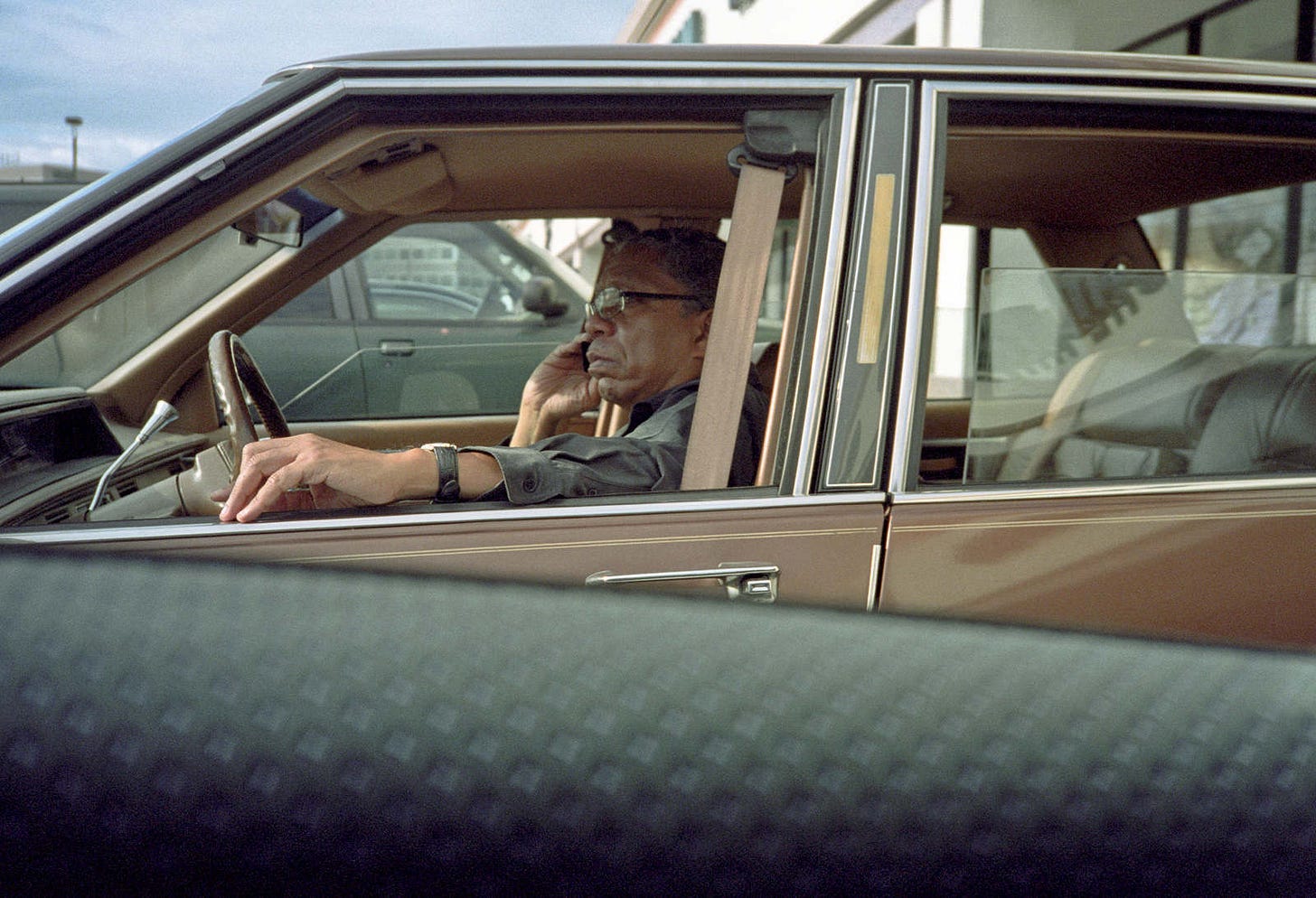




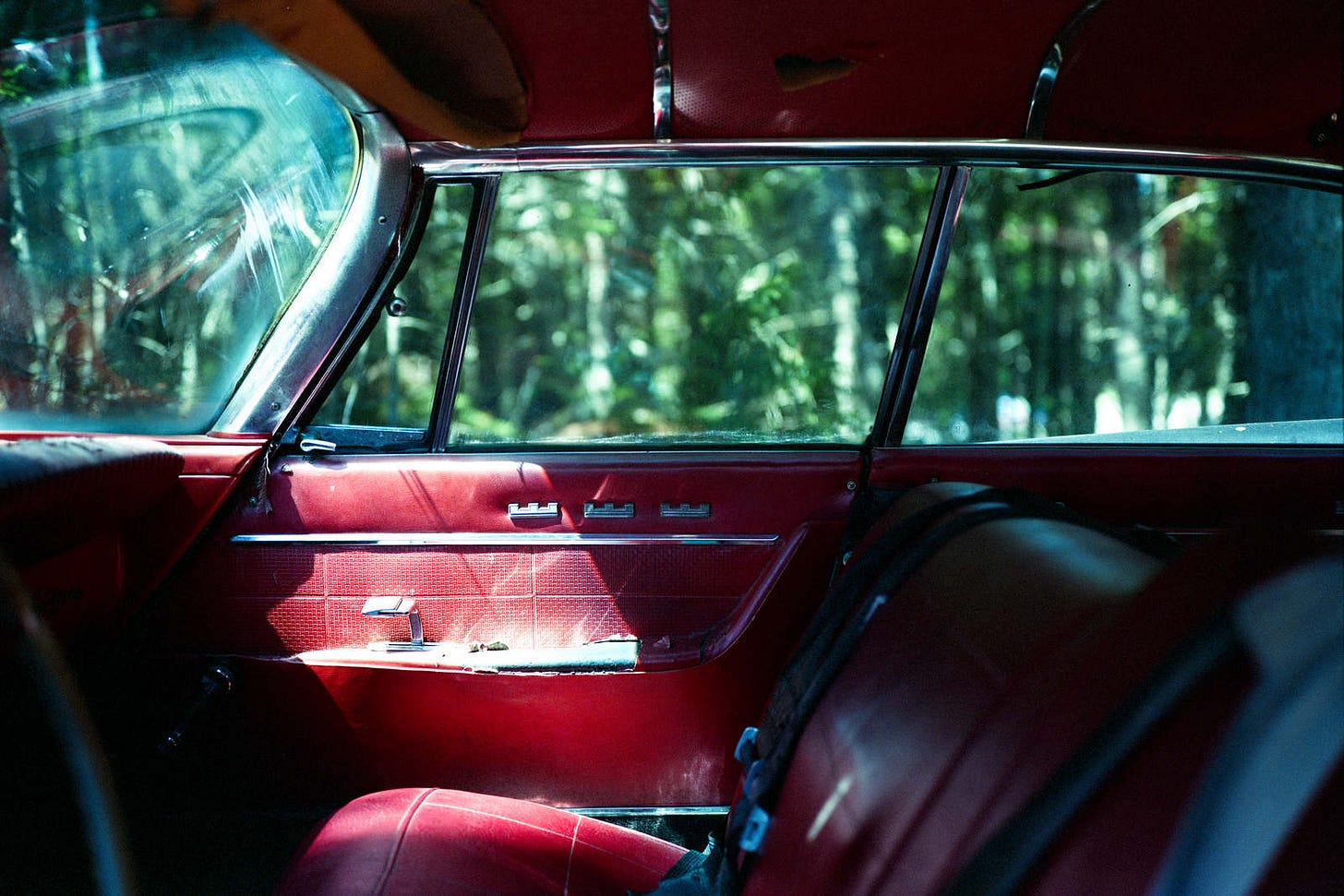
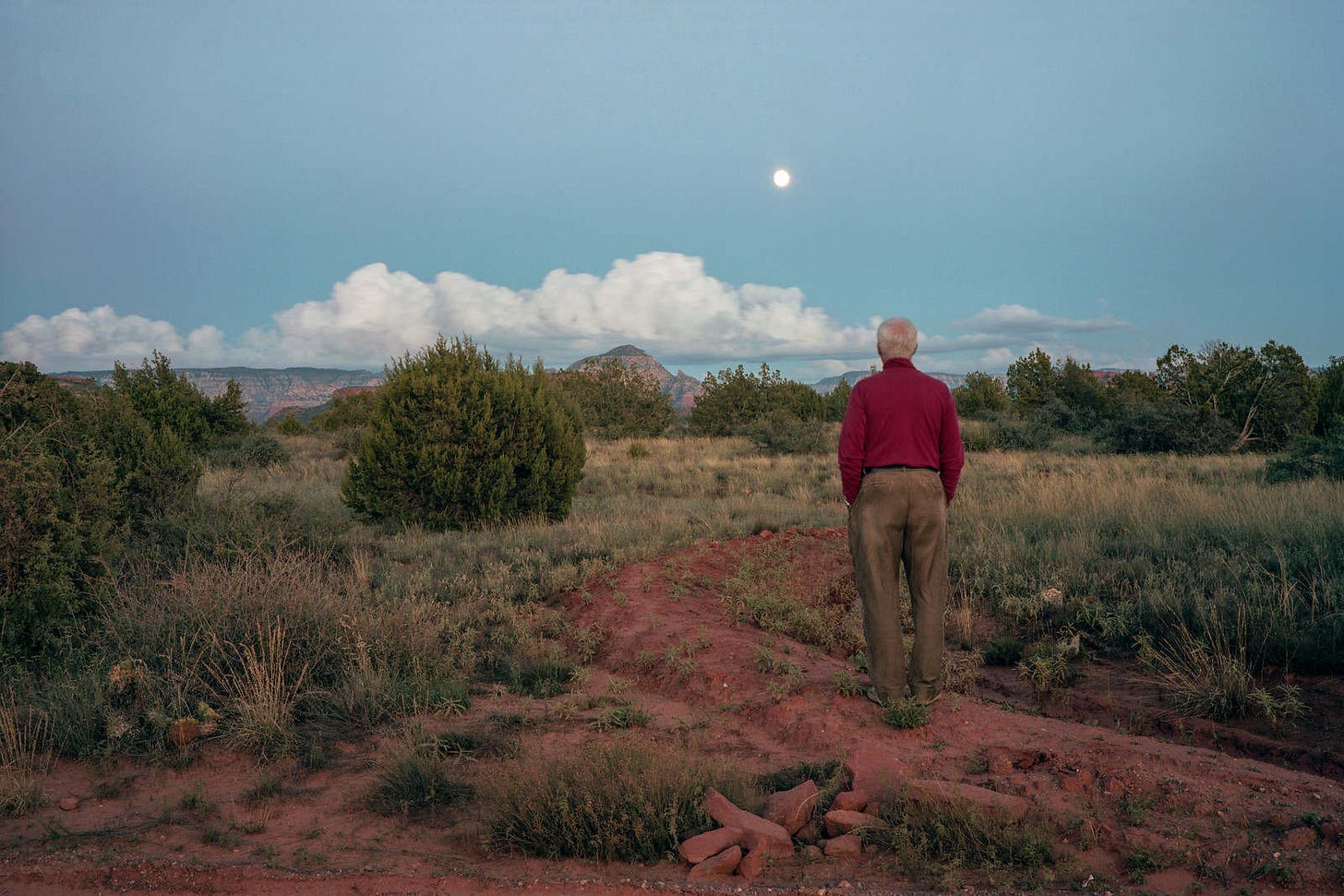

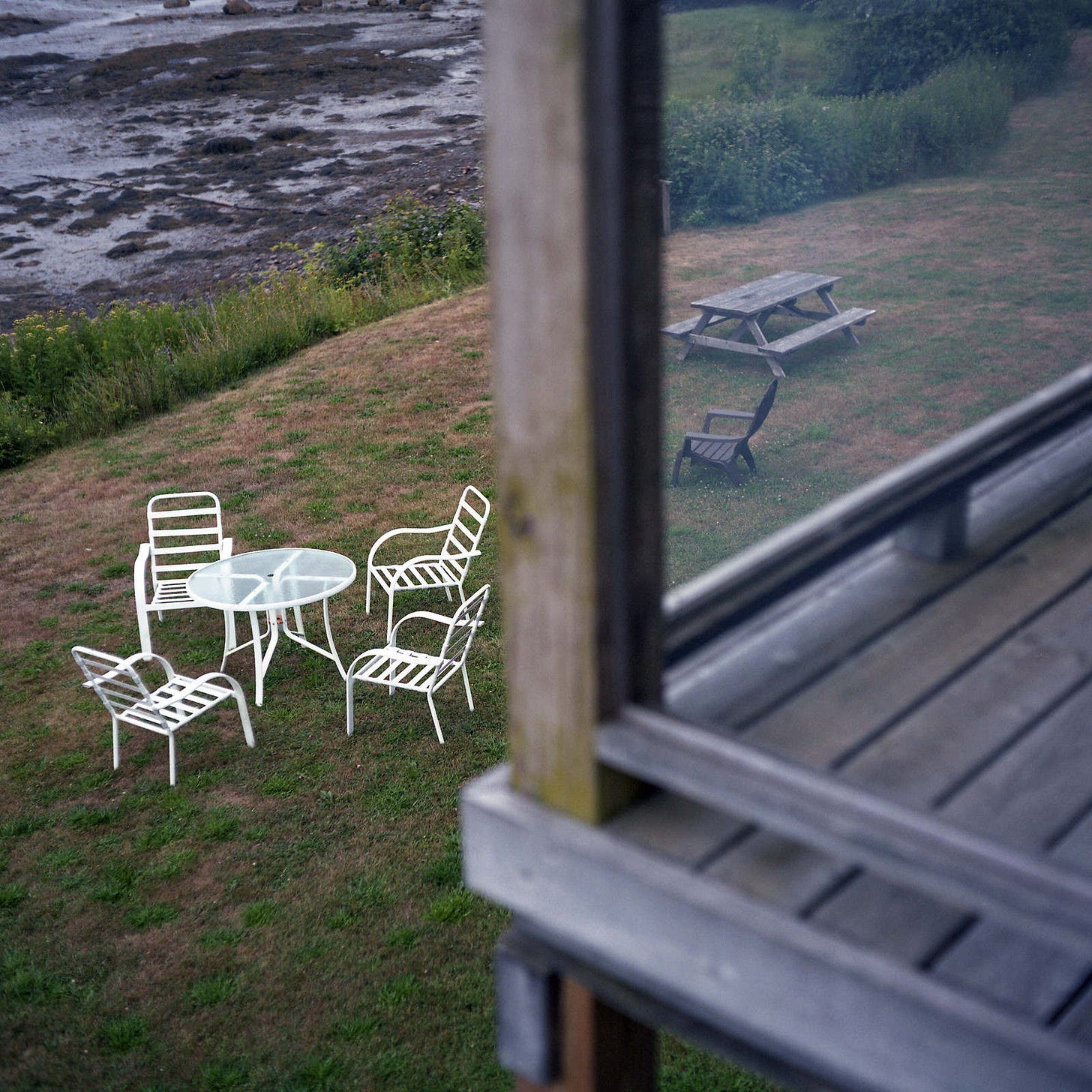
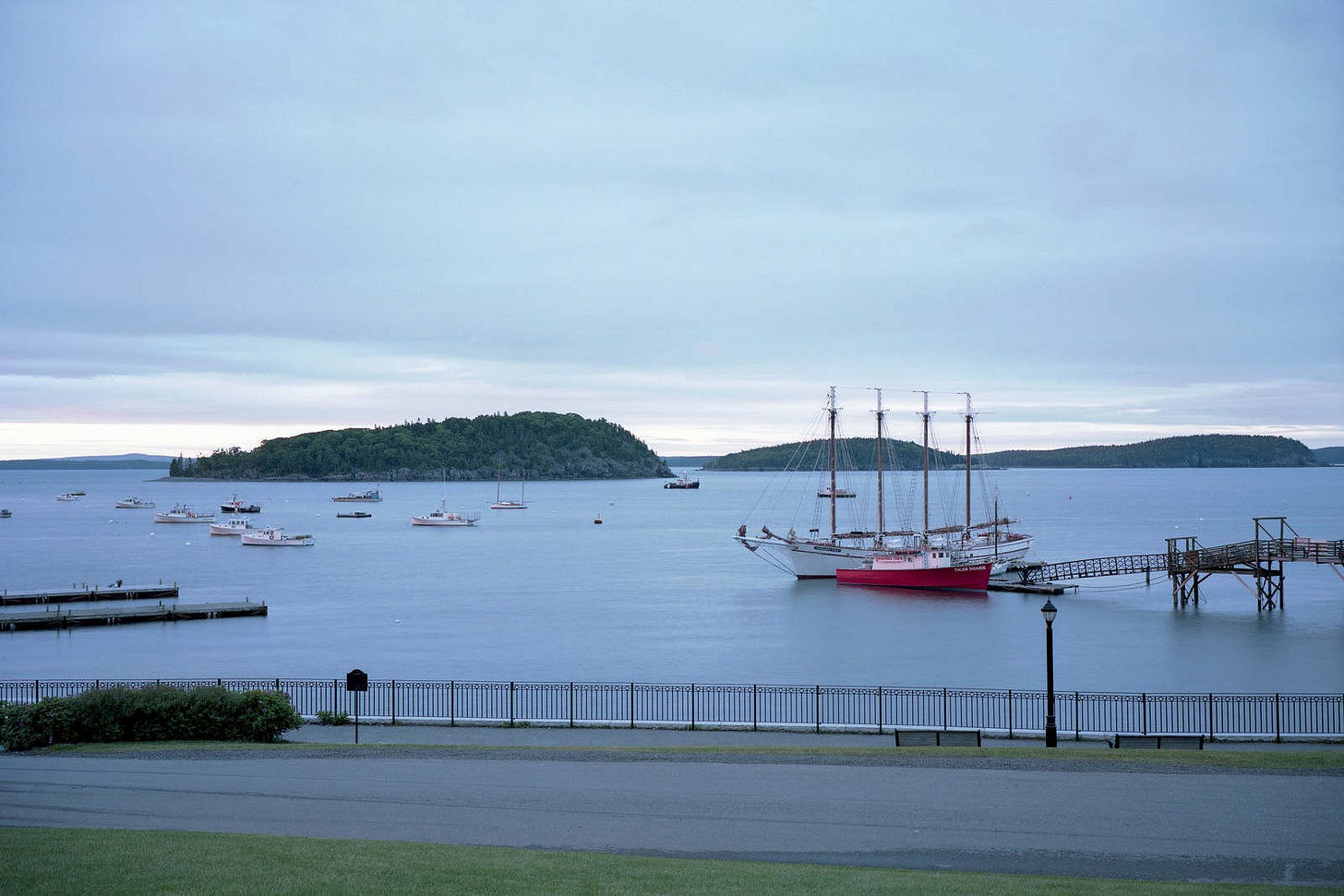


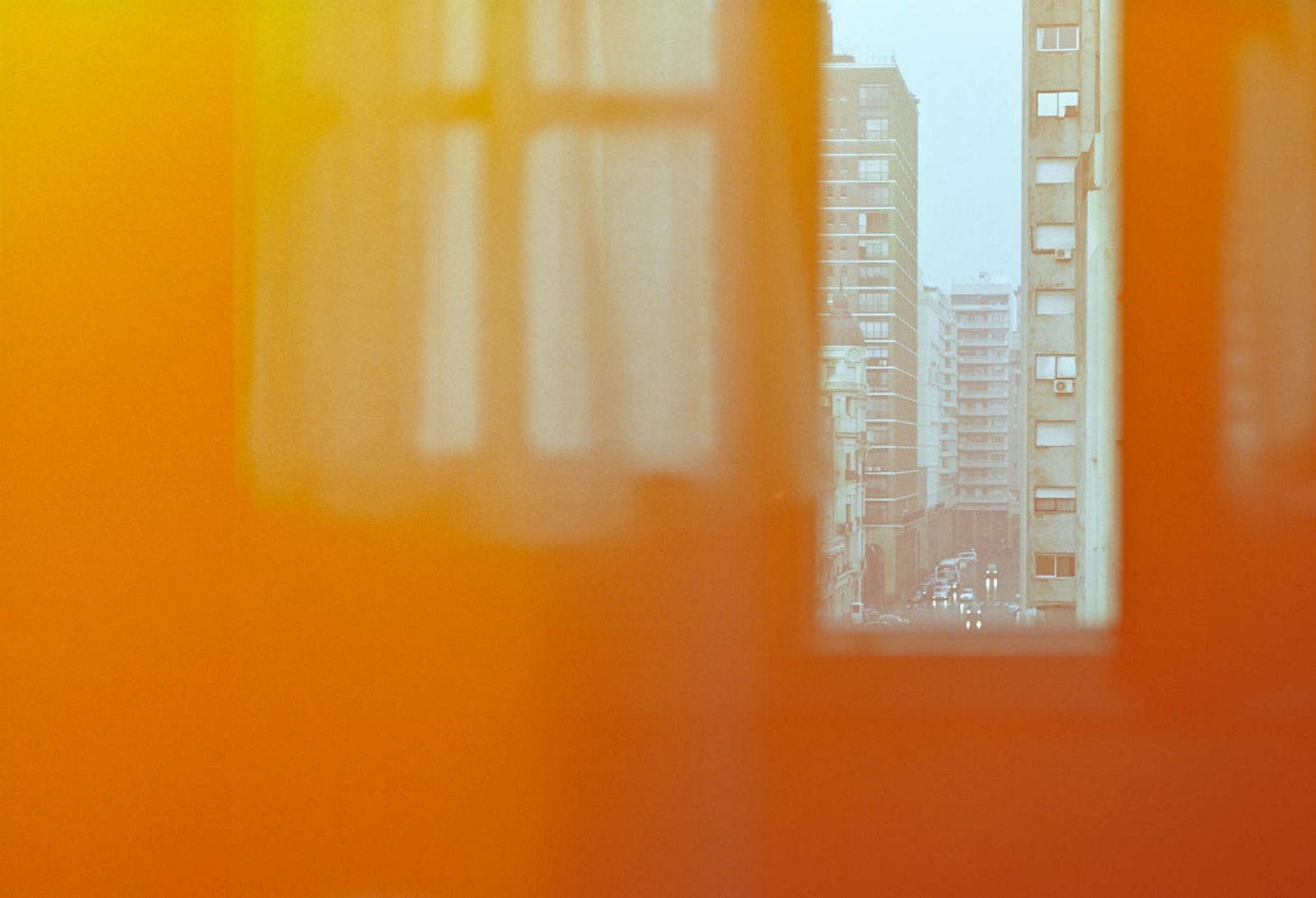




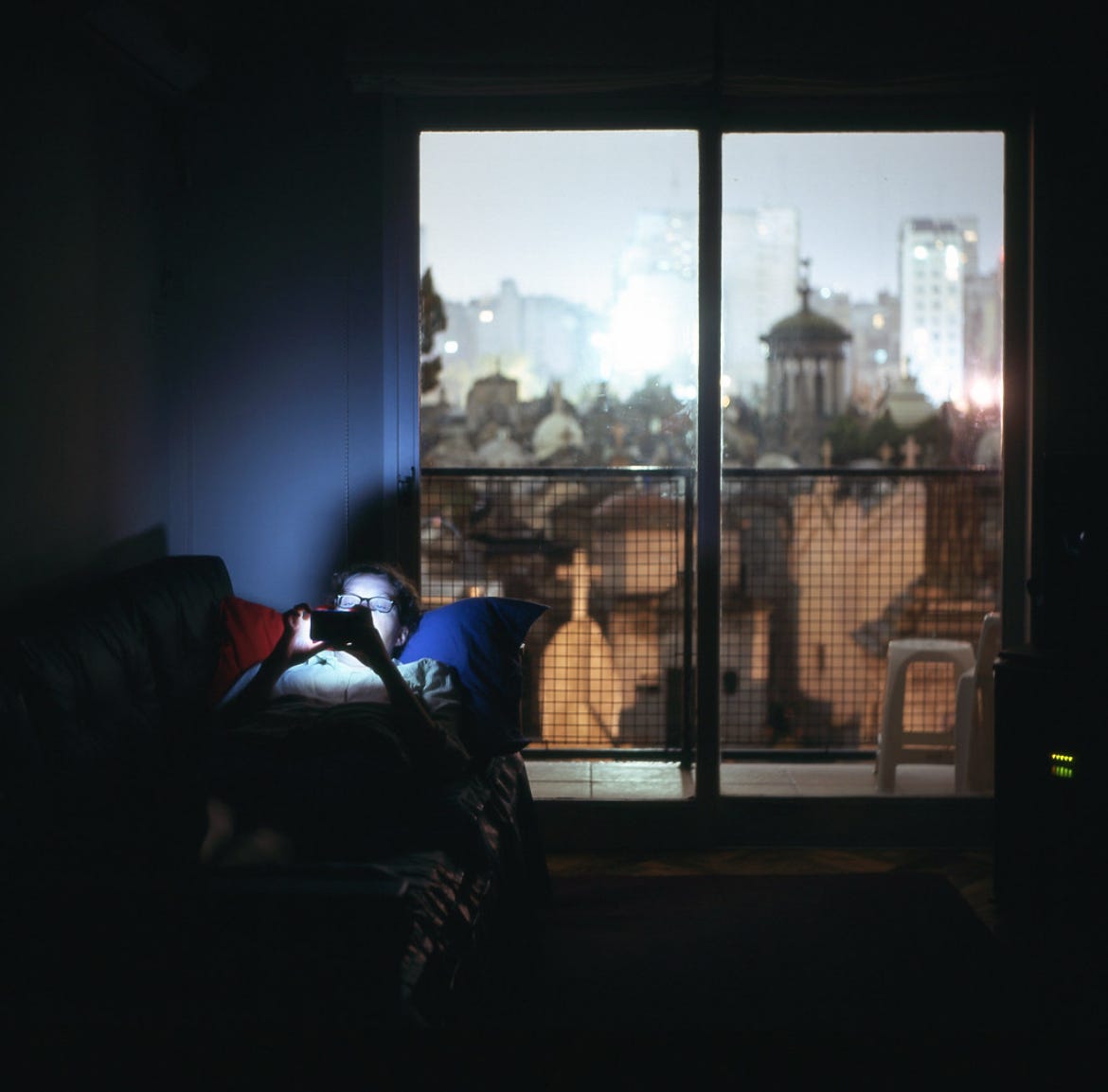
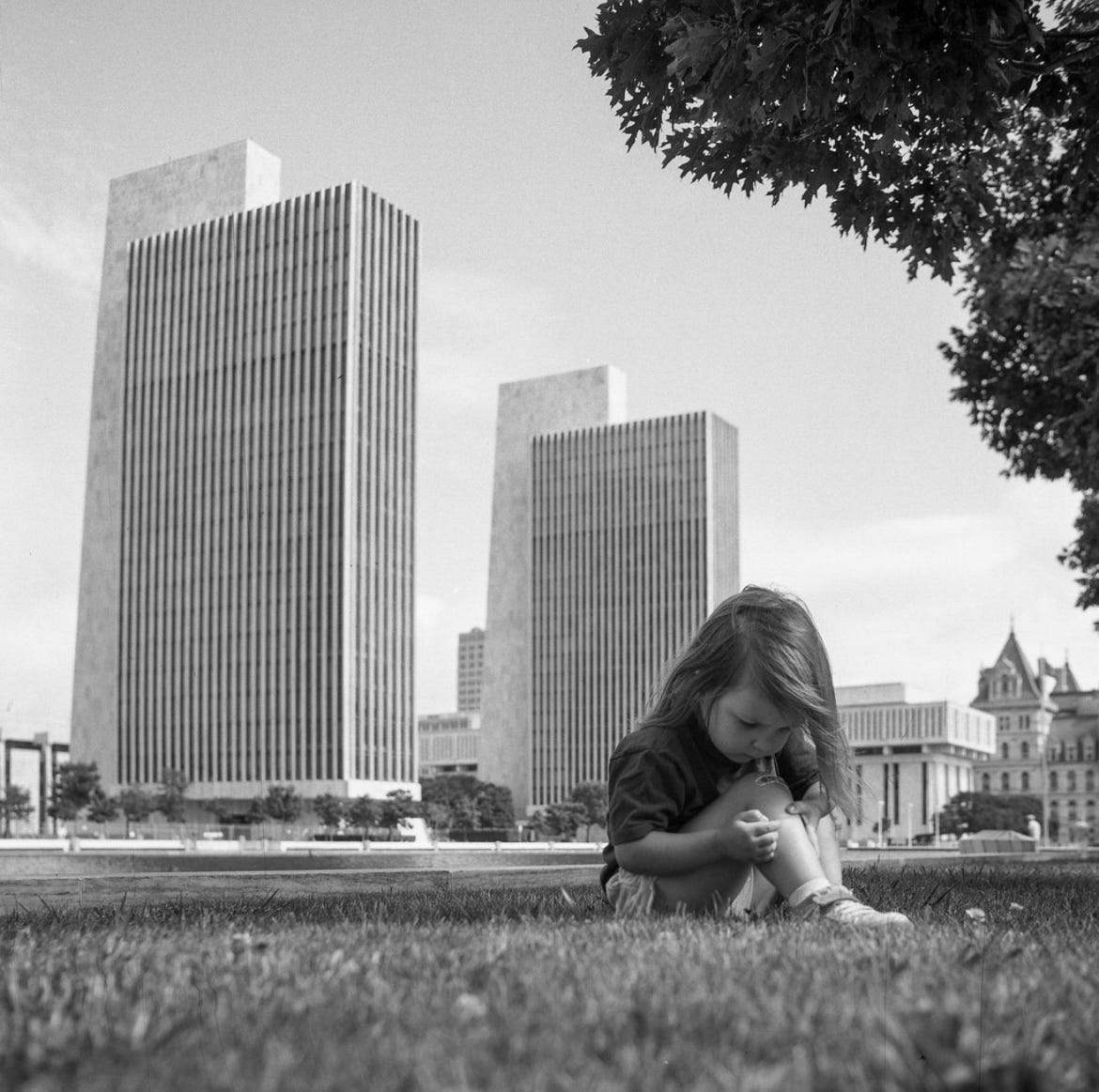

So good!!!